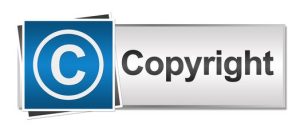- Determine if your work that has been copied is protected by copyright law.

Imagine that you spoke to someone about writing a book about an investigator who needs to go to therapy while undercover, and then that person writes a book about a firefighter who needs to go to therapy. At first glance, you might think that that person has stolen your idea, thus infringing on your copyright. That’s not accurate, though. Since when you spoke to this person about your idea, it wasn’t a fixed expression, it was still only an idea. Ideas aren’t protected by copyright law.
- Next, you should determine whether you actually own the rights to the work.
If the work was created for someone else or during the course of your employment, it’s possible that you may not own the copyright. Only the copyright holder can enforce his or her own copyrights. So if the copyright holder is the company that you worked for, your only recourse for infringement is convincing the company to sue the infringer. You do not have any legal right to send a cease-and-desist letter or a DMCA takedown notice, although you can do it anyway. And you definitely don’t have the right to sue.
You must also consider whether you gave a license to someone to use your work. This license could take the form of a written contract, or it could just be oral agreement granting them permission. Either way, what looks like an infringement could actually be an authorized use. It could even just be a misunderstanding by someone who interpreted the scope of the permission they received more broadly than you did when you gave it.
- Even though the person has used your work, they might have a successful fair use defense. This means that their use of your work is not illegal.
While this isn’t directly related to the law, if you’re bothered by another’s non-infringing use, you can contact that person to let them know why you’re bothered and work out a solution without actually invoking the law. Besides, formal legal procedures and threats often complicate simple problems that can be solved through communication.
Keep in mind that the law does allow anyone to reuse, adapt, quote, criticize portions of your work without your permission as long as they adhere to the guidelines of fair use, even if you object to the way that person has re-appropriated your material, and even if they don’t give you credit for it.
Before going forward with an infringement claim and hiring a lawyer to analyze your situation, it would be highly beneficial to educate yourself on the basics of fair use and copyright law in general to better determine what you really own and don’t’ own.

